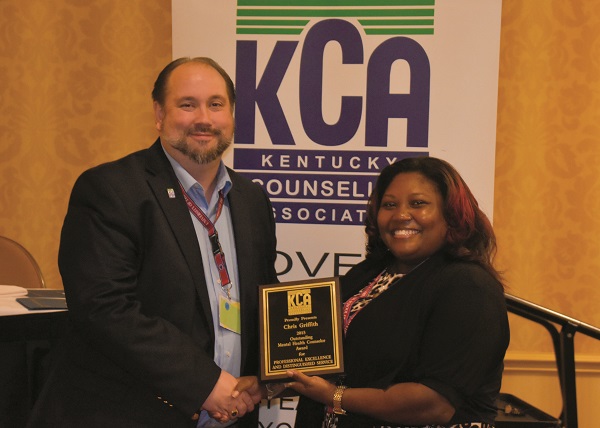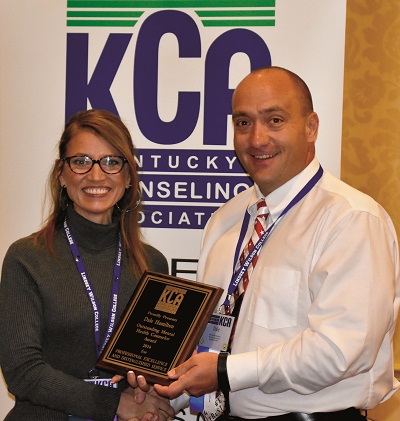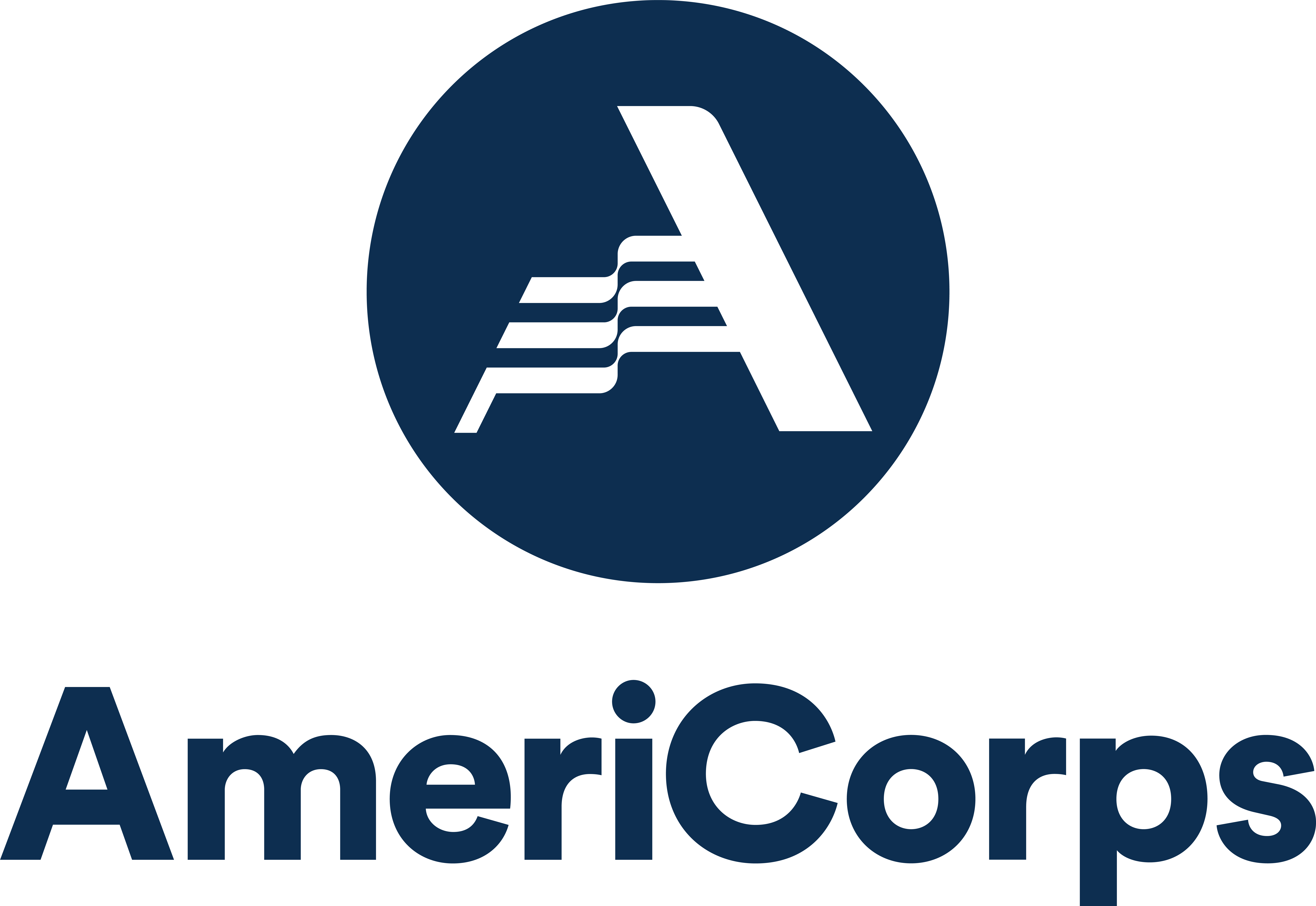
“One of the great things about CAP is that we have a network of programs doing a beautiful job of addressing immediate, basic needs like food, shelter, and clothing. We have programs that will patch your leaky roof, nourish your hunger, or drive you to town for a doctor’s appointment. It’s safety and shelter and critical needs being met,” explains Chris Griffith, manager of CAP’s Family Life Counseling Program. “CAP approaches this work from a very holistic, relational point of view, so when other needs come to the surface we want to address those as well. One of those layers of need is mental health.”
Currently celebrating 30 years of service in Eastern Kentucky, CAP’s Family Life Counseling Program seeks to address the mental health needs of children, families, and individuals. Griffith and his team of four full-time counselors conduct counseling sessions with clientele who have been referred by other CAP programs, partner agencies, churches, and other clients. Issues associated with mental health are not unique to Appalachia, but the prevalence of generational poverty in the region creates its own unique set of presenting problems and requires some very intentional methods of treatment.
Griffith explains, “There’s a rigor to dealing with generational poverty, more than anything else. Multi-generational poverty, where you’ve never really known anything but hand-to-mouth – there are implicit stresses that create mental health issues like depression. It’s a burden. If you’re hungry or water is dripping on you from a hole in the roof, you can’t concentrate on anything else. When you look at Maslow’s hierarchy of needs, you can’t get to any higher levels of being if you’re worried about safety, food or other basic needs. Once CAP has satisfied immediate needs through other programs, the Counseling Program addresses needs at the next level.”
 When people have secured basic necessities, they are able to begin focusing on mental health needs that may have existed beneath the surface for years or even decades. According to Griffith, “A family may get their porch fixed and that’s no longer a worry, but what’s left over? There may be unresolved traumas, depression, anxiety, or other more severe issues like bipolar disorder – they can now attend to those issues since we’ve worked with them to achieve that first level of being.”
When people have secured basic necessities, they are able to begin focusing on mental health needs that may have existed beneath the surface for years or even decades. According to Griffith, “A family may get their porch fixed and that’s no longer a worry, but what’s left over? There may be unresolved traumas, depression, anxiety, or other more severe issues like bipolar disorder – they can now attend to those issues since we’ve worked with them to achieve that first level of being.”
One of the ways Family Life Counseling fits into the broader landscape of CAP programming is by equipping families and individual family members with the tools, skills, and healthy practices to eventually break free from the cycle of generational poverty. Working with parents and children to identify, acknowledge, and treat previously unresolved mental health concerns enables the family unit to function with more stability, support, and strength. These children can now benefit from an environment that allows them to thrive and advance because of better models of mental health management in the home.
The lack of resources available to many Appalachian families increases the severity and chronicity of mental health issues. In more urban areas, treatment is aided by higher average education levels, easier access to public transportation, and exposure to a variety of supplemental coping techniques. In Central Appalachia, there is a scarcity of specialized counseling opportunities such as trauma specialists, art or movement therapists, or providers offering concentrated treatment options. All of these factors contribute to the need for a different approach to counseling.
“In more typical counseling sessions, a lot of times it’s bridging small gaps. It’s insight and understanding,” Griffith expounds. “And you have these epiphanies that take place. At the end of that kind of session there’s an instant payoff. With our folks, in many ways the payoff is far greater, but that level of education and resources – where I ask if they know a certain book that would be helpful or suggest outside activities – there are limitations on those. Sometimes it takes money to do those supplemental things. The issues we see with many of our clients are multi-layered. There may be a problem that you can’t get to for weeks or months because you need to work through the other layers in order to get to the core thing. Sometimes it takes months and months, and even years.”
|
Chris Griffith receiving the 2015 Mental Health Counselor of the Year Award. Griffith also won the award in 2015. |
For counselors at CAP, treatment can often be an elongated process. Establishing a foundation by assessing the problem and building rapport, working to do skill building and enhancement, offering insight, and developing healthy practices takes time. Each step in this sequence needs to be reached before progressing to the next. Moving the client to a point where they are in a more functional state, capable of maintaining their progress and ready to terminate treatment, can take double, triple, or even quadruple the time of more typical counseling settings. This thorough process is worth the effort when participants are eventually able to experience lasting positive outcomes from their treatment.
Another factor that plays a role in treating mental illness is the distinctive familial culture of the region. The family unit holds an elevated position and function in Appalachia, serving as the primary, and often lone, support system. There is typically great value in this dynamic. However, sometimes the implicit tendency to resist assistance with problems outside the confines of family can strain relationships and become an obstacle to dealing with serious mental health issues. Family Life Counseling approaches treatment differently from other providers in order to account for this reality.
Griffith explains, “Our primary focus is on the family. Our services address issues involving the family. We’re one of the few providers that offers family counseling, as well as marital and relationship counseling. A lot of folks don’t do that. We also provide individual mental health sessions, but from the beginning, our principal objective has been to serve the family unit.”
“Most other providers are generally concerned with individual outpatient mental health treatments and outcomes. Even if multiple family members seek treatment there, each one would be in a vacuum. Family Life, in contrast, views the entire family or the couple as the client. For example, consider a family of four – mom, dad, two kids – whom we’re seeing individually. We may be seeing mom for unresolved trauma, dad for anger management, and the children for behavioral problems resulting from the unstable home environment. We would also meet with them all together in family counseling. We’re able to integrate those things in a manner that recognizes the reality of familial relationships in treatment. There are, of course, rules and legalities about transferring information from one to the other which we always follow, but the point is that we’re able to deal with the whole family in a way that feels like an integrated, relational service.”
|
Dale Hamilton receiving the 2016 Mental Health Counselor of the Year Award. |
On average, the staff of Family Life Counseling conducts around 4,000 sessions each year. Beyond their individual, family, and couples counseling services, the program strives to be a resource for the community at large and for CAP. Counselors lead training sessions for a number of partner agencies and organizations, as well as for other CAP programs. Counselors at Family Life are breathing new life into their local, regional, and state mental health organizations by establishing innovative partnerships, shaping policy, and providing guidance through leadership (Griffith has served the past two terms as chair of the Kentucky Board of Licensed Professional Counselors). The CAP Counseling Program was at ground-zero of one particularly pioneering initiative designed to make it easier for professional licenses to be transferable between bordering states – an initiative never before attempted anywhere else in the country.
The outstanding performance of Family Life Counseling’s staff has not gone unnoticed by their peers in the field. A counselor from CAP has won the Mental Health Counselor of the Year Award three of the last four years – Chris Griffith was honored in 2013 and 2015 and Dale Hamilton won the award in 2016. The advanced level of service at Family Life Counseling is a testament to the commitment of the staff to CAP’s mission and to their own motto, “Professional Counselors, Compassionate Services.” It is clinical excellence operating at the level of human relationships that makes this program so vital and effective.
Griffith summarizes, “It’s just something we all kind of carry, like an oral history passed down. One of the things that sets us apart at CAP is that we don’t rely solely on a medical model, where a client is assessed in a cold way. Our approach is much more humanistic. What we do is both an art and a science. There’s an empiricism to it, and if there wasn’t it would just be like talking to a friend – there has to be an empirical approach to change. So we find ways of making cases to people that there’s value in this process. We present compelling reasons for change, and ultimately that has the power to lead to long-term transformation.”









